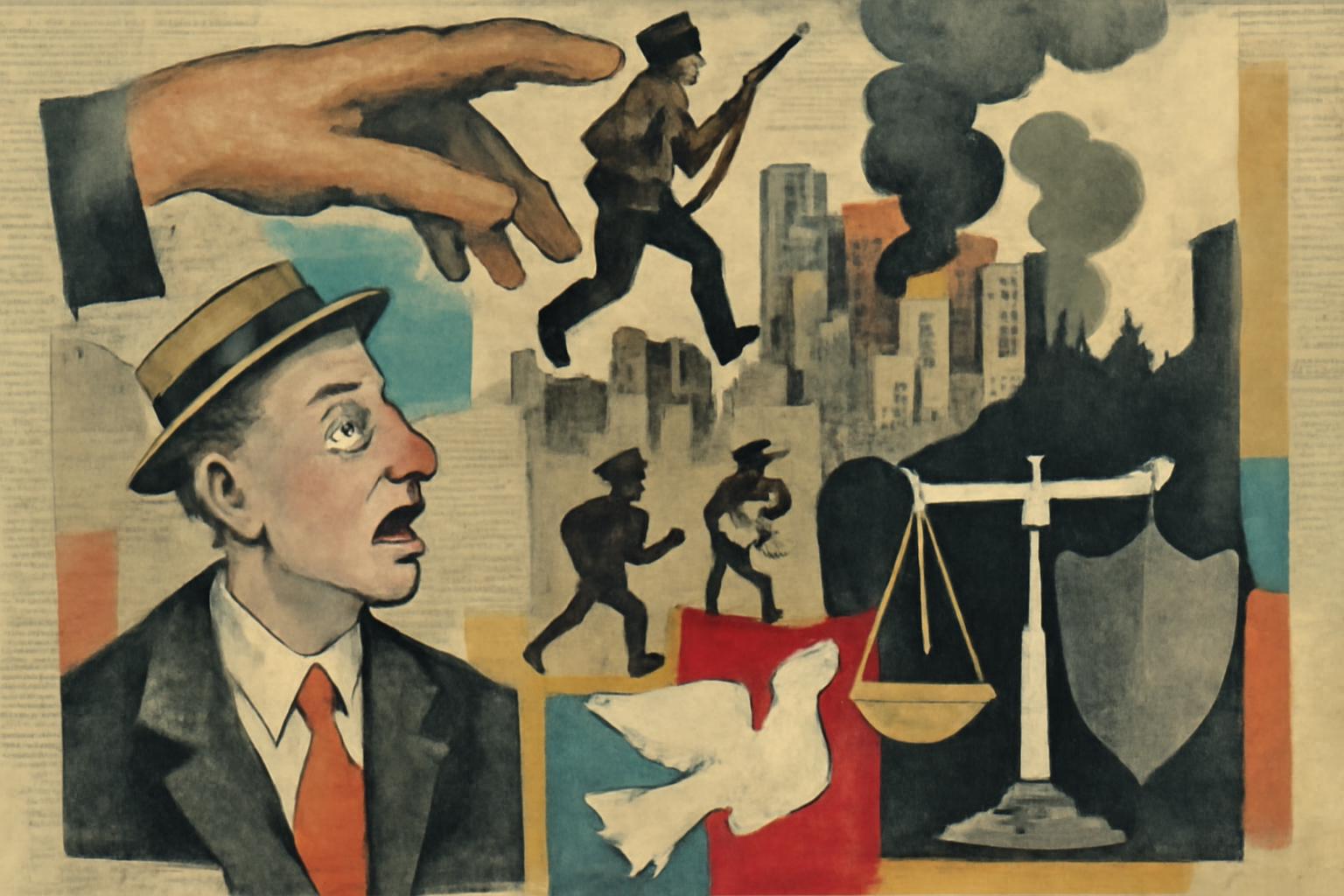A major push is underway to seize a central city, mobilizing tens of thousands of reservists and extending many active-duty deployments. Ground and air forces are targeting districts that host markets, clinics, and refugee populations; the ceasefire that once applied has been suspended in several zones. With upwards of a million people in the city and aid agencies warning of a widening calamity, the risk of humanitarian catastrophe is intensifying. Even as officials frame it as a strategic necessity, the operation rests on coercive power, mobilizing citizens who did not consent to fight and threatening civilians who have not chosen to be drawn into this struggle. The planned capture of the city is couched as a fallback against a broader threat, yet it would entail a massive expansion of state coercion and wartime control over life and property.
From a Hayekian vantage, the root error is central planning dressed as strategic necessity. War is the ultimate test of knowledge dispersal: no planner—no matter how well-intentioned—possesses enough precise information to allocate resources, deploy troops, and predict the consequences of incendiary urban operations in real time. The result is a self-fulfilling escalation that distorts markets, warps incentives, and hides the true costs behind banners of national interest. The mobilization seizure is not a neutral act; it is a political command over millions of lives, memory, and property, undermining the rule of law and the predictable signals that a free society relies on to coordinate peaceful exchanges. If the state can conscript, it can justify anything in the name of security, and the very institutions that guard liberty—free exchange, private property, spontaneous cooperation—are the first to be sacrificed on the altar of urgent necessity.
From Nozick’s rights-based lens, conscripting citizens to fight on behalf of a political project is a fundamental rights violation. The legitimate state, if it exists at all, is a night-watchman: it protects individual life, liberty, and property against force and fraud, not as a vehicle for bold experiments in conquest or retaliation. Forcible service is a coercive levy on persons, a transfer of prerogatives from the individual to the state by force, not by consent. Even when framed as defense, the initiation of coercive violence against civilians and noncombatants cannot be squared with a rights-respecting order. A genuine defense requires objective duties to protect rights, not an expanding mandate to impose one faction’s aims on another. The result is a slippery slope: once conscription is normalized, the state’s power grows, and the protective function mutates into a tool of political domination rather than a guardian of individual rights.
From Rand’s Objectivist perspective, the moral justification for any action in self-defense hinges on respecting individual rights. Defense is permissible, but it must be rational, limited, and aimed at stopping aggression, not at enforcing a political outcome or conquering territory. Forcible mobilization of civilians, coercive service, and the relocation or endangerment of civilians violate the fundamental moral status of persons as ends in themselves. If the aim is to deter or repel aggression, a principled defense requires minimizing harm to innocents, preserving voluntary rights, and resisting the expansion of state prerogatives that undermine individual sovereignty. The idea that a city must be seized to preserve security collapses when the means unintentionally erode the very rights the state is supposed to defend. War, to be morally tenable, must be a narrowly tailored act against the initiators of aggression, not a wholesale assertion of power over noncombatants or over regions that do not threaten unambiguous rights violations.
In practical terms, the libertarian critique points to several imperatives: - End conscription and replace coercive service with voluntary defense arrangements, funded by voluntary contributions and private security arrangements, so that individuals freely choose whether and how to participate in protection against aggression. - Limit the state to defensive purposes and the enforcement of rights, not to sweeping projects that rationalize control over populations, civilians’ movements, and private property in the name of strategic advantage. - Protect noncombatants and safeguard humanitarian relief through voluntary, private channels—charities, NGOs, and civil society initiatives—rather than state-imposed relocation or military coercion that risks turning aid into a tool of control. - Preserve the rule of law and price signals that coordinate peaceful exchange. A war economy that commandeers labor, resources, and civil life distorts these signals and erodes the very liberties it purports to defend. - Recognize the dangers of expanding state power in a crisis. A rule-bound, limited state is more resilient and less prone to slide into empire or endless intervention than a government empowered to commandeer entire populations for a single strategic objective.
If one accepts the core libertarian claim that individual rights are the ultimate measure of any political action, the preferred path is clear: minimize coercion, maximize voluntary cooperation, and reserve force for the only legitimate purpose of stopping aggression against peaceful individuals. The idea that a city can be seized, and tens of thousands of people conscripted, without eroding the very liberty such actions claim to defend, is a paradox that libertarians reject. The true defense of human lives and liberty lies not in grand offensives that threaten civilians and undermine institutional order, but in disciplined restraint consistent with reason, rights, and a free, voluntary order.
